SAPS IN CRISIS
Unlicensed to kill: police corruption, inefficiencies and outdated systems hobble SA gun control
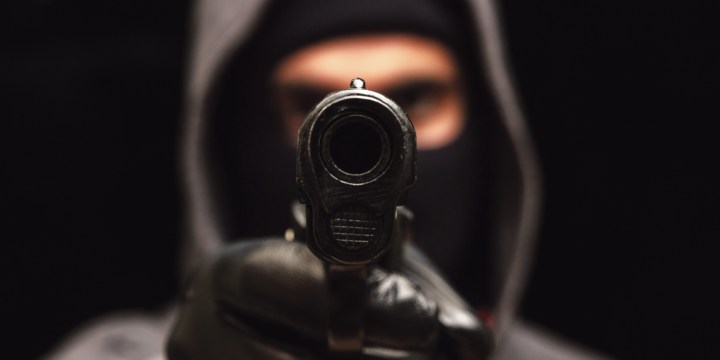
A new report on lax firearm controls in the country shows police are a big part of the problem they are meant to be solving. And worse is that the situation is hardly new.
Ten years ago, the South African Police Service (SAPS) confirmed that there was an “ongoing investigation across the entire gun licence issuance value chain”.
According to a government statement issued on 12 July 2013, allegations of fraud and corruption at the Central Firearms Register (CFR), sometimes also called the registry, were under investigation at the time.
A report released this week, just a day short of 10 years later, details how the CFR was beset with problems even before then and has consistently struggled ever since.
Titled The State of the Central Firearms Registry in South Africa: Challenges and Opportunities, it was launched by lobby group Gun Free South Africa and the African Policing Civilian Oversight Forum.
Daily Maverick has paired some of its contents with previous police statements to emphasise how old the problems at the CFR are and how, decades after some were first picked up, the police are still fumbling to address important issues.
The CFR is critical in South Africa, where crimes involving firearms are prevalent. It falls under the SAPS and is responsible for keeping comprehensive records and databases on all firearms in South Africa – licences, competency certificates, imports, exports as well as the loss, recovery, theft or destruction of any weapons.
However, the CFR has consistently been at the centre of controversy for reasons ranging from poor storage methods that have led to paperwork stacked in corridors to police corruption in its ranks.
Guns to gangs
The report released this week is linked to a class-action lawsuit recently instituted in the Western Cape, involving families of individuals murdered or wounded in the province with firearms smuggled by cops.
The case hinges on Project Impi, South Africa’s biggest firearm smuggling investigation, which led to the arrest of Chris Prinsloo. The former police colonel confessed to selling firearms that were meant to have been destroyed to people who allegedly channelled the weapons to gangsters.
Prinsloo was convicted in 2016, but that same year Project Impi collapsed, with some cops claiming that SAPS bosses had killed it off.
The Prinsloo matter emphasised how police officers were part of gun control problems in South Africa.
According to the report, stringent oversight mechanisms and cracking down on police corruption are vital, though more research is needed to analyse how firearm controls could be tightened.
During its launch, it was also suggested that all government departments report to Parliament within a year, explaining how many firearms they have and how many may have been lost or stolen.
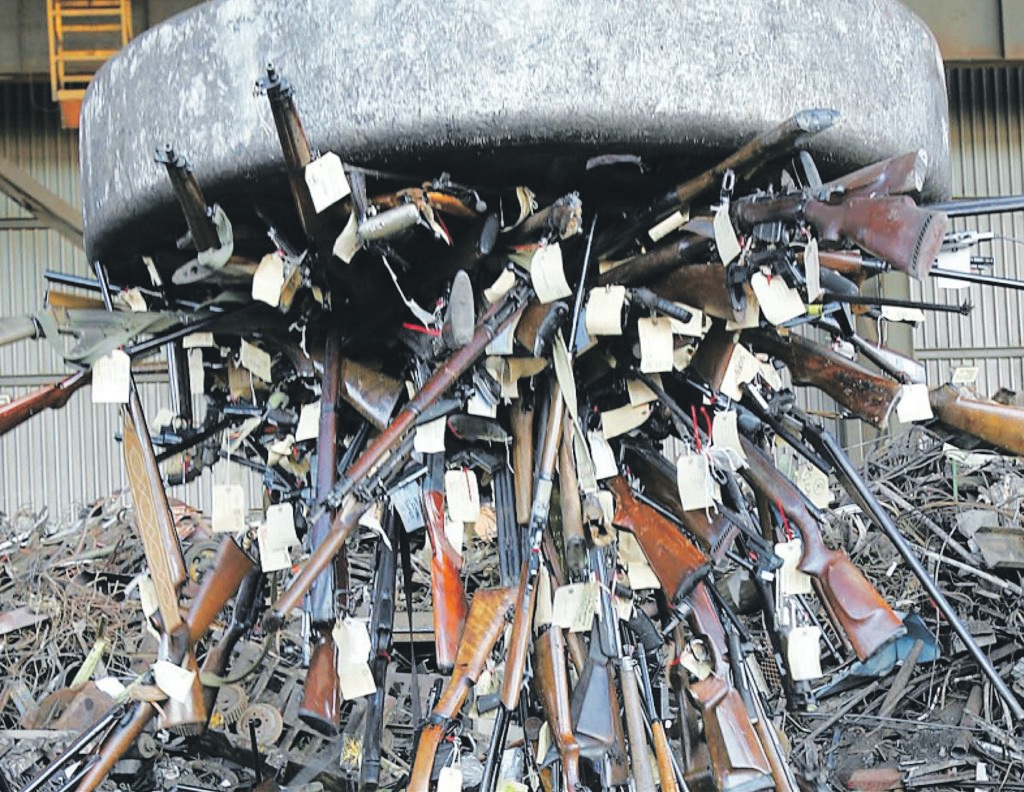
On 6 July 2023 the South African Police Service destroyed 15,700 firearms in Vanderbijlpark, Gauteng. Picture South African Police Service
Reshaping the register
The report explains where the CFR fits into legislation: “[It] was established by the Arms and Ammunition Act (No. 75 of 1969) and is currently governed by the Firearms Control Act (FCA) (No. 60 of 2000), as amended.”
In the late 1990s, the report says, the CFR underwent a major restructuring and was increased in size “due to dysfunctionalities at the time and high levels of gun violence”.
Another reason was that “the CFR’s electronic systems were antiquated and difficult to use, and many CFR personnel were inadequately trained to input and access data”.
By early 2000, though, progress had been made in shaping up the register and more thorough criteria for firearm applicants were introduced.
Designated firearms officers, who deal with gun-related matters, were also introduced at police stations.
But this also came with issues. “A more rigorous civilian licensing process was highly labour-intensive, particularly the background checks,” the report says.
Firearm licence holders needed to renew their licences, as per the Firearms Control Act, and renewal applications ran into the millions. “These dynamics placed considerable administrative strain on the staff of the CFR, and as a result processing often took an inordinate amount of time to finalise,” the report says.
“The high level of firearms licence rejections between 2000 and 2010 led to various threats of legal action by firearms interest groups, with some being lodged.
“This litigation, combined with concerns voiced publicly by firearms enthusiasts, resulted in the Minister of Police instructing the Civilian Secretariat for Police Service to establish a task team in 2010 to scrutinise the working methods of the CFR.”
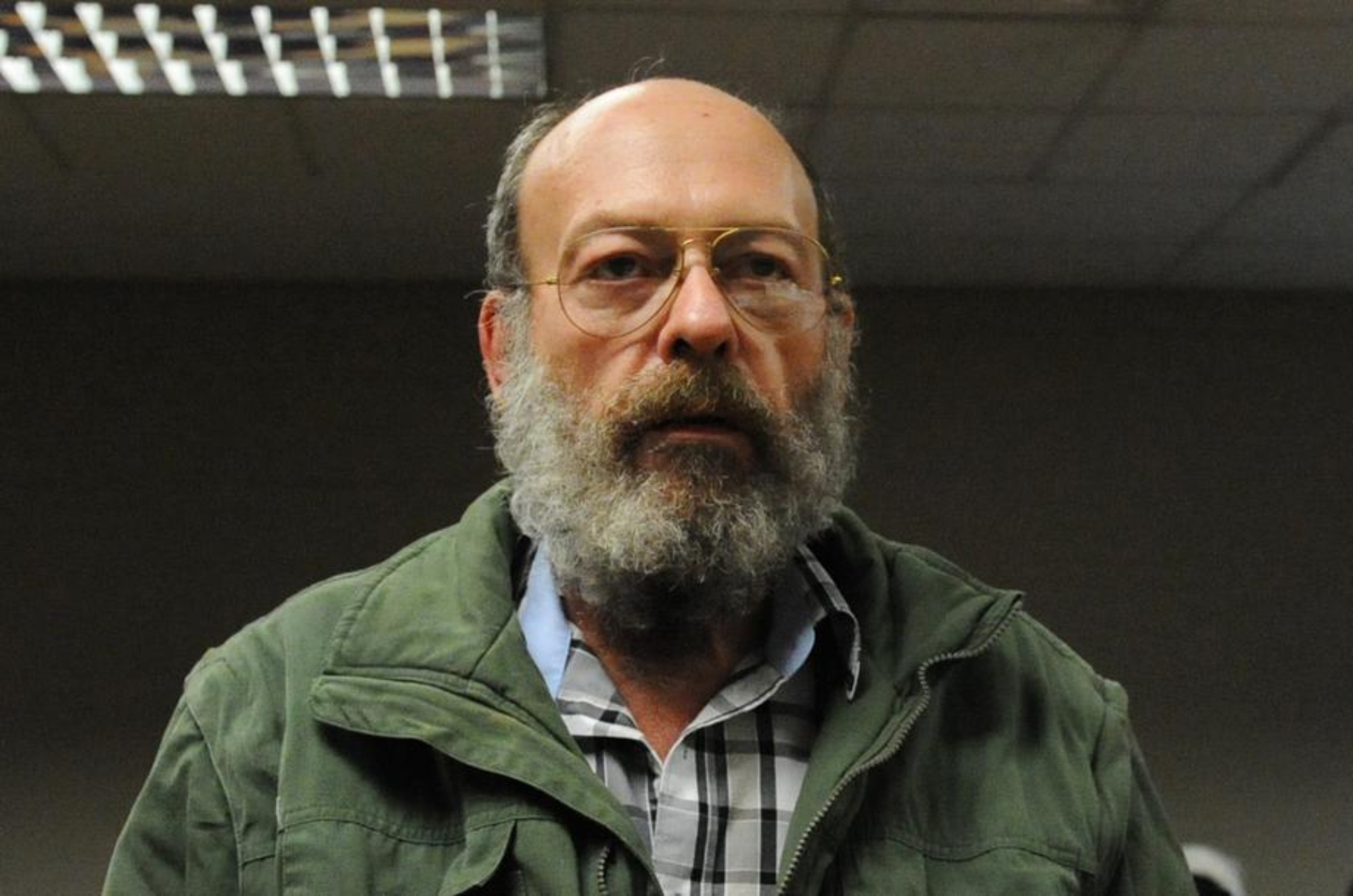
Former policeman Chris Prinsloo. (Photo: Gallo Images/Die Burger)
Licence irregularities and fraud
In 2010, Nathi Mthethwa, who was police minister at the time, said: “A number of concerning issues were raised regarding irregularities in the issuing of firearms licences…
“There are also cases where a single firearm is licensed to two different individuals and/or illegally issuing firearms to people who have been genuinely refused licences (such individuals having to pay bribes).”
By 2011, the police successfully managed to address licensing backlogs, processing more than one million licences in nine months. However, the report says this, too, caused some gun control cracks.
“Although hailed as a success, the risk is that fast-tracking compromised South Africa’s firearms control management system.”
The CFR also became embroiled in corruption allegations and, in 2013, the SAPS confirmed that it was investigating possible fraud and corruption at the register.
The next year, Brigadier Mathapelo Mangwani, who had headed the CFR, was fired for allegedly accepting bribes to expedite the issuing of certain firearm licences.
Also in 2014, suspected 28s gang boss Ralph Stanfield was arrested, along with his wife Nicole, sister Francisca and three CFR police officers – Priscilla Mangyani, Billy April and Mary Cartwright. These cops allegedly created fraudulent firearm licences for crime suspects.
A 2014 police presentation to Parliament listed several other problems in the police’s handling of guns, including the “improper control of firearms handed in at the police stations”. The CFR had “insufficient storage space facilities” and a personnel shortage, and “dust and grime” at its premises were also flagged.
The SAPS did damage control in 2015, issuing a statement to say it was cleaning up the CFR. “To prevent any opportunity for corruption, SAPS is screening and vetting personnel performing functions in the unit,” it said. “Furthermore these personnel will be rotated. There is now clear segregation of functions, limited access on certain user functions and the encryption and password control measures.”
This was not enough.
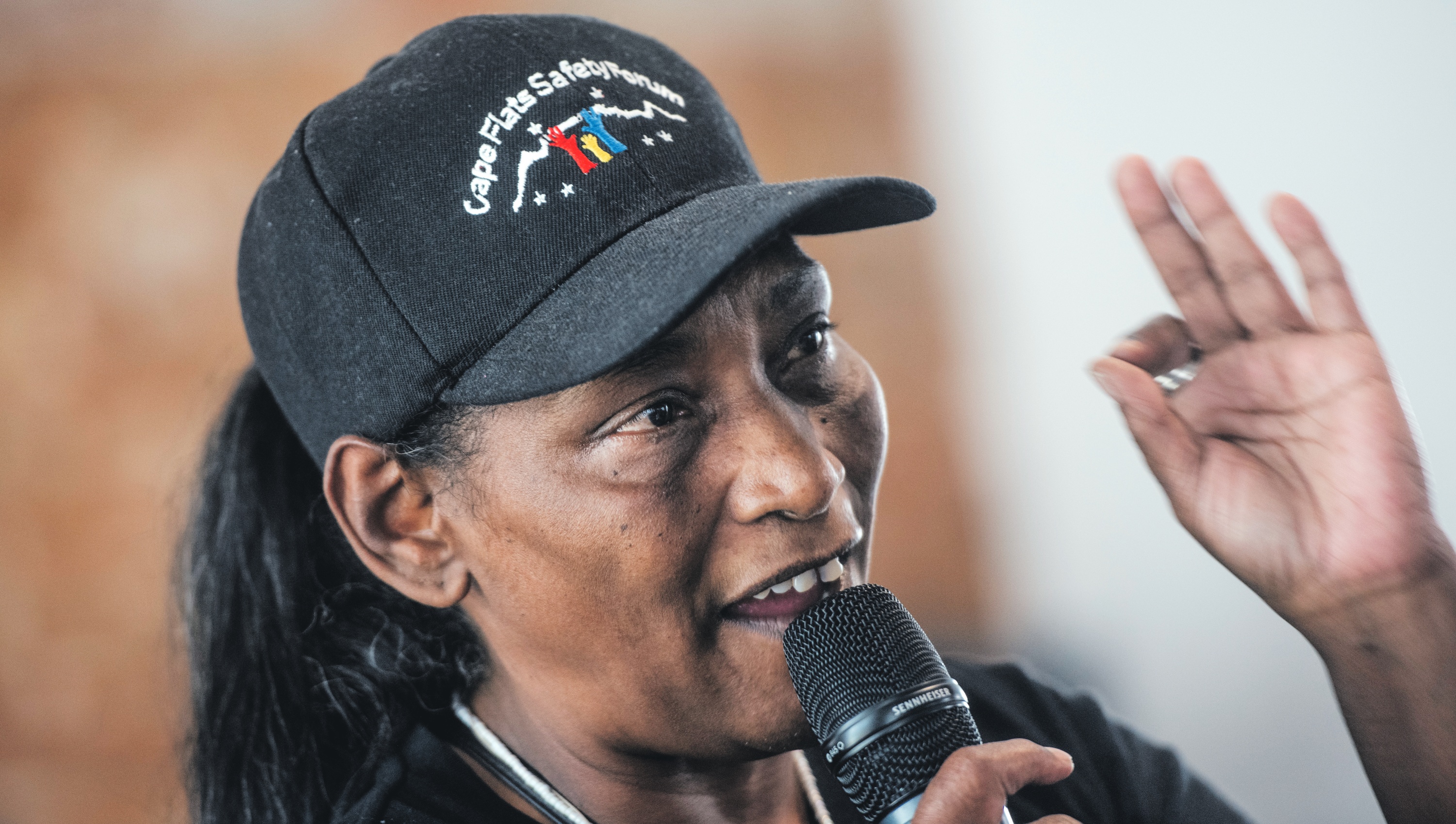
Lynn Phillips, secretary of the Cape Flats Safety Forum, speaks at a media briefing in Cape Town on 10 May 2023 about a class action lawsuit that a group of residents in the Western Cape, who have been affected by crimes carried out with firearms smuggled by cops, are pushing against the South African Police Service. Photo Brenton Geach
A cop’s murder
The SAPS announced in 2020 that “intensive and extensive investigations following alleged wheeling and dealing” in parts of the CFR had led to the “arrest, at this stage, of at least 16 people in multiple criminal cases”.
It was alleged that fraudulent gun licences had been created for individuals not meant to possess such documents.
Among those arrested were police officers as well as alleged organised crime kingpin Nafiz Modack. Though charges relating to the firearm arrests were provisionally withdrawn earlier this year, Modack is still an accused in a murder case relating to the assassination of police detective Charl Kinnear in Cape Town in September 2020.
Daily Maverick previously reported that Kinnear had been investigating how police officers in Gauteng were allegedly creating fraudulent gun licences – and how his murder could result in those cases collapsing.
Meanwhile, according to the report released this week, there has been slow progress in improving the CFR in recent years.
“Between 2017 and 2021 there seems to have been little progress in addressing problems with the CFR’s electronic licensing system. In 2021 the SAPS compiled a new four-pillar CFR ‘action plan’ to enhance capacity and capability; enhance governance; address issues related to file storage and office space; and to deal with ‘system development and enhancement’.”
Issues relating to Covid-19 seem to have impeded the implementation of that plan.
Daily Maverick previously reported that Parliament heard that the CFR is based in the Veritas building in Pretoria, which had been found unfit for human occupation as far back as 2019. It needs to move to another building, Telkom Towers, which is only expected to be ready for occupation in October this year.
Parliament also heard that, though there was some improvement at the CFR, the police still recorded the sale of ammunition manually and not electronically.
To solve this issue, the State Information Technology Agency was awarded a contract on 5 April 2023. However, the SAPS may actually be in contempt of a court order relating to a deadline for digitising records.
Based on the report released this week, meetings in Parliament and statements from the police themselves, critical problems including cop corruption, resource shortages and archaic storage and record keeping have for decades weakened South Africa’s gun controls. This as crimes involving firearms persist.
‘Track down all guns’
During the launch of the report, The State of the Central Firearms Registry in South Africa: Challenges and Opportunities, in Cape Town this week, Lynn Phillips, secretary of the Cape Flats Safety Forum, said she did not need to switch on Netflix to hear gunshots. She lives in the Cape Town suburb of Mitchells Plain, where gun violence is prevalent. Pointing to how bad the problem was, a nine-year-old boy died in hospital this week after being shot in the head in another Cape Town suburb and gang hotspot, Manenberg. Although the incident did not appear to be gang-related, it highlighted concerns about guns.
Phillips emphasised that the South African Police Service (SAPS) needed to track down all firearms used in crimes, even after arrests that result in convictions. For example, a suspect could be arrested and convicted for a shooting, but if the firearm was not found, it could still be used in other crimes. Phillips pointed out that the police needed to take such a situation into consideration.
The SAPS announced last week that it had confiscated 54,517 firearms since April last year.
“Over 15,700 of these firearms, which were either seized during crime prevention operations, voluntarily surrendered or forfeited to the state, were also destroyed in Vanderbijlpark, Gauteng,” it said in a statement on 6 July.
“The SAPS will continue to intensify operations to detect and remove illegal firearms and ammunition from the streets of South Africa.” DM
This story first appeared in our weekly DM168 newspaper which is available countrywide for R29.
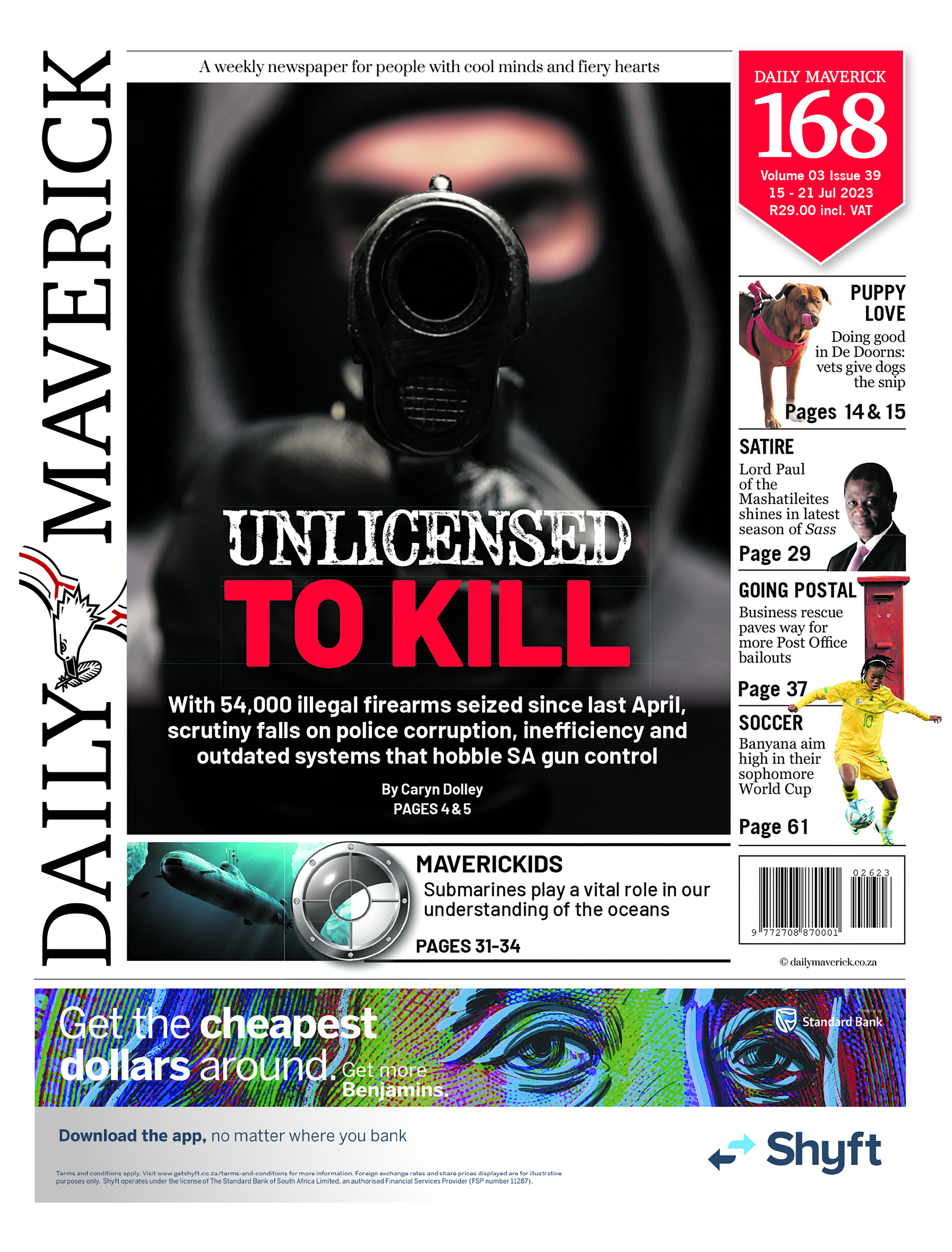




















 Become an Insider
Become an Insider
Comments - Please login in order to comment.